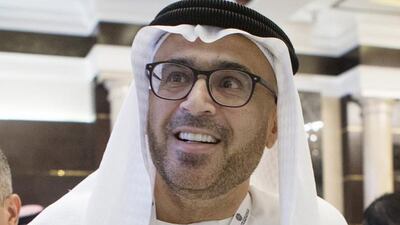Sheikh Khalifa, The President, has declared 2017 the Year of Giving. The initiative concentrates on three objectives: first, consolidating social responsibility in private-sector institutions. Second, consolidating the spirit of volunteerism and establishing volunteer programmes. And third, strengthening in the minds of the new generation the notion that serving the nation should be synonymous with the love of the homeland.
The UAE’s serious approach to implementing ambitious initiatives is embodied in the Year of Giving. Moreover, Sheikh Mohammed bin Rashid, Vice President and Ruler of Dubai, has launched the UAE Food Bank, one of the most important parts of the Year of Giving.
The UAE’s successful approach also applies to other initiatives: the Year of Reading, for instance, is a great example of a fruitful endeavour that comprised more than 1,500 events, as well as the implementation of the National Reading Law – the first in the region.
In addition, Dh100 million was granted to transform this endeavour into permanent institutional work. The UAE is not launching empty slogans, rather it is taking calculated steps with carefully defined objectives. Moreover, the nation possesses the capability to realise these goals.
The nature of the Year of Giving initiative prompts me to say with confidence that it will yield major outcomes. It promotes the notion of giving to the homeland, which requires dedication from its citizens to serve their country by contributing to national achievements. In line with this notion, Sheikh Khalifa said that “true citizenship does not consist of systematically taking; rather, it entails self-sacrifice for the sake of the nation”.
The UAE has given much to its people and provided them with welfare, dignity and stability – to the extent that Emiratis are envied by many around the world. It is high time the sons and daughters of this beautiful homeland did their part in protecting their country and worked voluntarily to safeguard its stability and progress.
Undoubtedly, there are wonderful examples of Emiratis who have given great service without expecting a reward. The Year of Giving seeks to make these examples the norm by transforming this conduct into general behaviour, especially among young people.
Most youth have not experienced hard times and may not be aware of the efforts and sacrifices made by the leaders to transform this country.
The most important aspect of this year is that it seeks to transform the act of giving into a moral value for the Emirati citizen – a value that promotes acts of charity as being part of a person’s character rather than being motivated by religious obligation. In this context, the Year of Giving is directly linked to the 2016 Moral Education initiative launched by Sheikh Mohammed bin Zayed, Crown Prince of Abu Dhabi and Deputy Supreme Commander of the Armed Forces, because the most important value that the new generation needs is that of giving to the homeland without expecting compensation.
Incorporating this value into citizens’ behaviour is important considering the current afflictions in society, including the spread of selfishness, the decline of social solidarity and the lack of a sense of responsibility. These shortcomings have stemmed from the transformations of modern life and from values imported from abroad.
The objectives of the Year of Giving are not limited to the narrow meaning of giving as in giving charity or money, rather, they have a deeper meaning that includes making a difference in society. In his article “What do we want from the Year of Giving?”, Sheikh Mohammed bin Rashid said that the initiative aims to instil values that urge people to perform acts of charity because such acts become an integral part of their values and morals.
The Year of Giving aims to create a person who gives not out of fear of punishment or for the hope of attaining paradise, rather he gives because it is instilled in his character.
It must be acknowledged that volunteerism in Arab societies is weak. Governments, regardless of their capabilities, cannot shoulder all the burdens of development. They need support from individuals, corporations and organisations, which is attained through instilling faith in volunteer work and social responsibility. Herein lies the uniqueness of the Year of Giving initiative: it has volunteerism and social responsibility as two of its three objectives.
While the Year of Giving initiative seems to focus primarily on promoting acts of giving domestically, it also extends abroad.
This was confirmed when the UAE was announced as the biggest donor of foreign aid in 2015 relative to gross national income, according to an OECD report. Sheikh Khalifa emphasised the country’s sense of giving when he said: “Every time we give more, God increases our blessings, stability, security, safety and reassurance.”
To strengthen the values that the Year of Giving aims to entrench in individuals, it is necessary to first enable the institutions responsible for social upbringing. These institutions include schools, universities, mosques and the media.
One cannot talk about consolidating the values of giving in any society without having these vital institutions both in place and well supported so that they can fulfil their responsibilities.
Dr Jamal Al Suwaidi, director general of the Emirates Center for Strategic Studies and Research, is a monthly columnist

